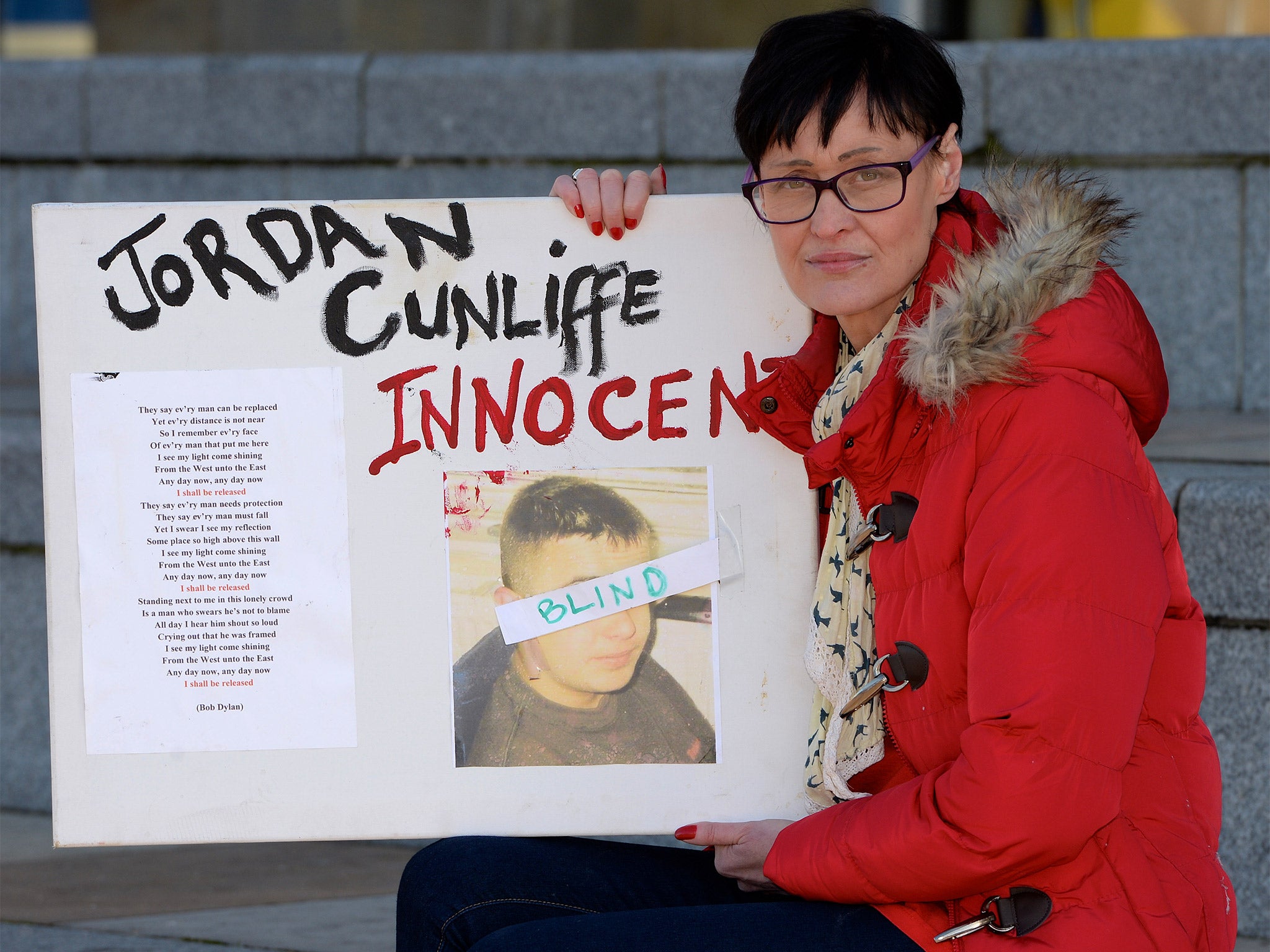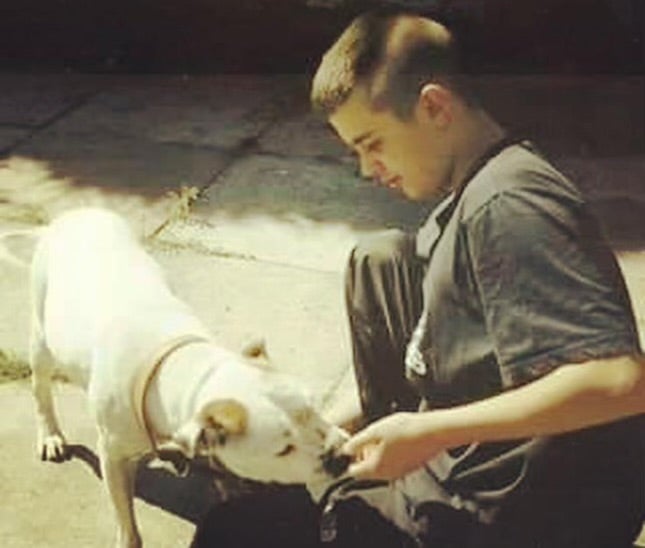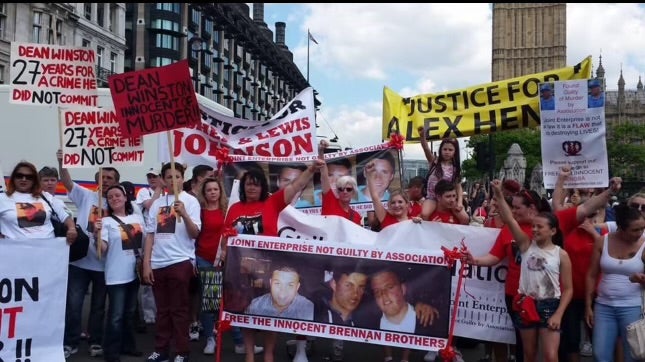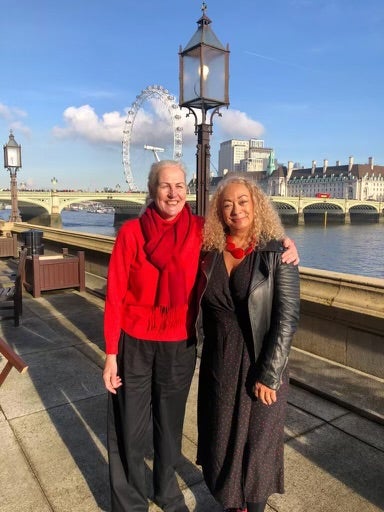Wrong place, wrong time? The women fighting for loved ones jailed for murder in joint enterprise
Lawyers and MPs are backing campaigners in fight for a change in the law around joint enterprise, which they say is being interpreted too harshly, Holly Evans writes


Three years ago, Salma Fiaz’s world was thrown into chaos when her teenage boyfriend was arrested by the police and charged with murder.
Faisal Fiaz, who was then aged 19, was part of a cannabis “snatch” from a local drug dealer in Redditch, Worcestershire, in July 2020.
Things turned violent when his accomplice, Mohammed Hammad Hussain stabbed a man to death inside his own home. Fiaz, sitting in a car a short distance away, says he did not know Hussain was carrying a knife.
But while the killer, Hussain, fled the country for Pakistan and remains at large, Fiaz was jailed for life with a minimum of 23 years under joint enterprise.
The law states that an individual can be jointly charged with the crime of another if the court decides they could have predicted the other person was likely to commit that crime and intended to encourage or assist them. It means that those who do not inflict the fatal wound can receive life sentences for murder or manslaughter.
“All Faisal’s seen is Hammad coming out, and no one knew what had happened at the time,” Ms Fiaz said. “Faisal found out about the death the same time as everyone else when it came out on social media. You do feel guilty that someone has lost a son, a husband, a brother. He is sorry that someone has died. But I always make sure it’s clear, he did not commit a murder.”
Following his conviction, Ms Fiaz turned to the advocacy group Joint Enterprise Not Guilty by Association, which was founded by Jan Cunliffe and Gloria Morrison in 2010.
In August 2007, Ms Cunliffe’s son travelled into Warrington to see friends. A fight broke out, resulting in a 47-year-old man being killed by a kick to the neck after he confronted a gang of youths who had been vandalising his car.

Her son Jordan, 15, suffered from an eye condition called keratoconus which left him with less than 10 per cent vision, and was due transplant surgery in both eyes. Given that he was physically unable to see the altercation and had not come into contact with the victim, she said she was horrified when he was pulled into questioning and charged with murder.
A 16-year-old confessed to delivering the fatal blow, but the prosecution argued that four others should be charged under joint enterprise, with two of those convicted and jailed. As a result, Jordan spent the following 13 years behind bars, and remains subject to stringent licensing conditions.
Since establishing JENGbA, Ms Cunliffe says her organisation has been contacted by 1,500 prisoners for advice and support.
“The greatest part of the battle has been the first 10 years because nobody believed us,” she said. “One of the House of Lords’ peers just said we were grieving mothers and wives and that our gangster husbands and sons had got what they deserved.”
In 2016, the Supreme Court acknowledged in R v Jogee that the common law interpretation of joint enterprise had taken a “wrong turn” during the 1980s, and that it had been wrong to convict people of murder on the grounds of foresight. However, the ruling stated that while the law may have been mistaken, it was not enough to hear the appeals of those convicted under the wrong interpretation of the law.

Following intervention by JENGbA, the Crown Prosecution Service agreed in February this year to monitor data on the race of those prosecuted under joint enterprise for the first time, and to participate in a six-month pilot scheme.
According to CPS data from September, more than half of those prosecuted under joint enterprise are from minority ethnic backgrounds, while black people are 16 times more likely to be prosecuted. It also found that prosecutions disproportionately affect children and young men, with 14 per cent aged between the ages of 14 and 17, and 40 per cent aged between the ages of 18 and 24. Almost 93 per cent of the defendants were male and 21 per cent of cases were gang-related.
Felicity Gerry KC, a defence barrister who led the R v Jogee appeal and currently represents Mr Fiaz as they take his case to the European Court of Human Rights, said that juries are frequently not told to consider levels of contribution to a killing.
“The only way to make the system safe and make joint enterprise cases safe is that the jury only convict those who make a significant contribution to the killing,” Ms Gerry said. “Prisons are bursting at the seams full of young people, who are often black, who have made no significant contribution to the crime, and that must account for cases when you have six or seven people in the dock.
“I do these trials all the time. You’ve got young people, people with autism, young women who have no control over their violent boyfriends, people who are no risk to the public and then wasting public money in prison. They’re labelled murderers so they can’t progress in prison nor when outside.”

The issue has been taken on by several MPs, including Labour’s Barry Sheerman and Kim Johnson, who have both introduced private members’ bills over the course of the last year.
Ms Johnson, the Labour MP for Liverpool Riverside, said: “The more I speak with families and learn about joint enterprise, the more outraged I become.
“Young people’s lives shouldn’t be destroyed by incarceration for crimes for which they made no significant contribution. A miscarriage of law is still a miscarriage of justice and I hope to rectify this long-suffering legal problem with my bill.”
A Ministry of Justice spokesperson said: “The government recognises the importance of the law on joint enterprise and the consequences it has for defendants and their families, as well as on victims and their loved ones. We have no current plans to amend the law in this area.”
Have you been affected by this? Email holly.evans@independent.co.uk
